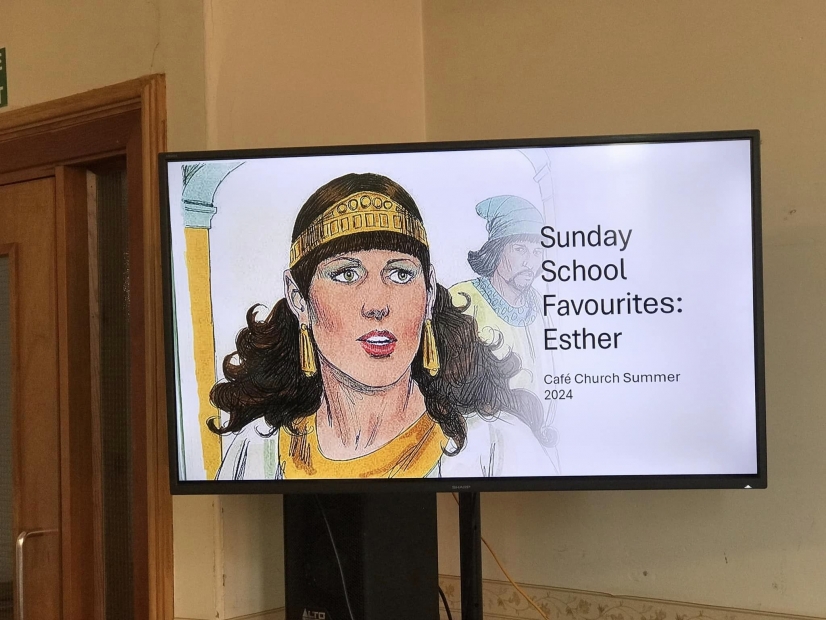A little belatedly - I am now on Annual Leave and didn't get this posted on Sunday.
We ended our series with a very brief look at Esther, before trying to identify what we thought God might be saying to us through the series as a whole.
The key phrases that stood out for me in response to the series as a whole were...
- 'Don't judge a book by its cover'
- 'There is always a 'people group' who are in 'exile', whether marginalised, persecuted or otherwise 'othered'
- 'The story of Ruth was the first story I remember from Sunday School; I have always loved it. I now realise there are always new things to learn from it' (someone in their 80s )
A lot of folk were particularly drawn to the story of Ruth, though David (a younger son and a flawed human) and Esther (a woman in an exploitative/abusive/patriarchal situation) and Daniel (old and bold) got a few mentions.
It felt like a good series, and in some senses a timely series. I think folk will be glad to be back to normal (not least as I've made them think quite hard!). I am grateful to them for engaging with what may have felt a challenging and very different approach to scripture and worship.
Here, should you want then, are the Esther questions...
- What comes to mind when you think about the story of Esther:
- Do you think it is a true story, is it a myth or a mixture of the two?
- This is one of the stories of the exile (when the Hebrew people were in Babylon (Persia) why do you think they are included in the Bible?
- Scheherazade and Esther?
The ‘Thousand and One Nights’ or ‘Arabian Nights’ is a well-loved collection of folk tales of Persian origin, described as being told by a young woman called Scheherazade to a king who was choosing his bride in a similar way to that described at the start of Esther. Some Persian traditions say that Schererzade was the mother or grandmother or Xerxes, and that this influenced the story of Esther. Some scholars see the similarity as a cultural influence.- How much do you think that the stories we read in the Bible are shaped by or reflect the culture and context in which they were first told or shared?
- Do you think there can be truths to discover from traditional folk tales and legends, if we are able to ‘suspend disbelief’?
- ‘#MeToo’
- The ‘#MeToo’ movement was a response to the abuse and exploitation of women. Some Bible stories involving women certainly appear exploitative to modern readers. Do you think there the story of Esther, and her predecessor Vashti, might be like this? For example, think about the behaviour of the King both in dismissing Vashti or using a beauty contest to select Esther.
- The ‘#MeToo’ movement was a response to the abuse and exploitation of women. Some Bible stories involving women certainly appear exploitative to modern readers. Do you think there the story of Esther, and her predecessor Vashti, might be like this? For example, think about the behaviour of the King both in dismissing Vashti or using a beauty contest to select Esther.
- Where is God in this?
- The original Hebrew text of the book of Esther is one of only two books of scripture that never mention God by name (the other is Song of Songs). Did you know this already? If not, does it surprise you? Either way, what might this story say to us about God?
- There is a Polish, Jewish ghetto prayer from the time of the Third Reich that, translated into English, says this:
I believe in the sun, even when it isn’t shining
I believe in love, even when I can’t feel it
I believe in God, even when God is silent
What do think about this prayer? How, if at all, does it chime with your own experience?
- For Such a Time as This…
- Have you ever used these words, or something similar, and if so, why was that?
- Have you ever tried to make sense of events, or to find a ‘meaning’ for something that happened? How did that feel?
- What do you like or dislike about the story of Esther and why?
